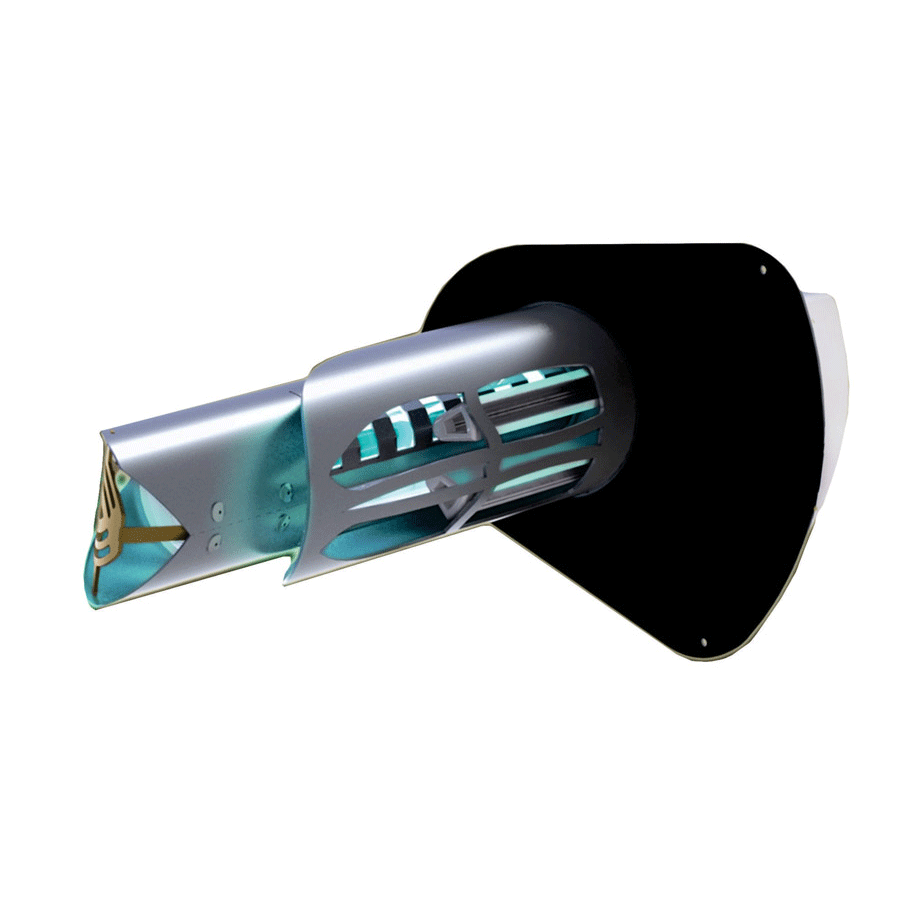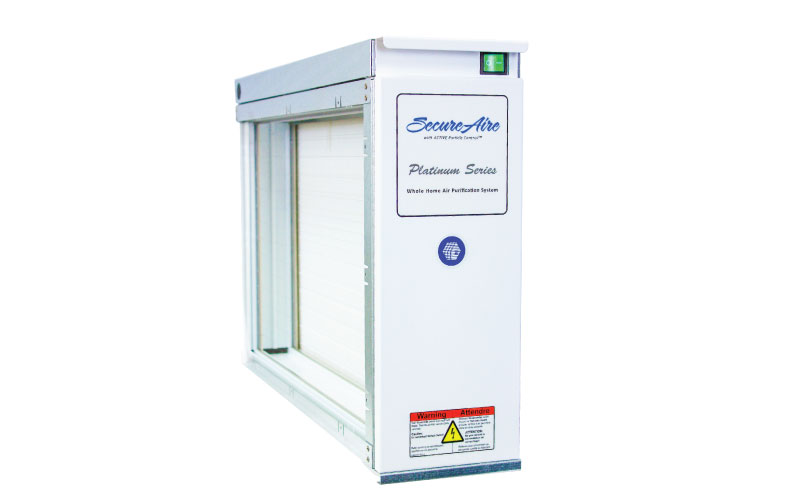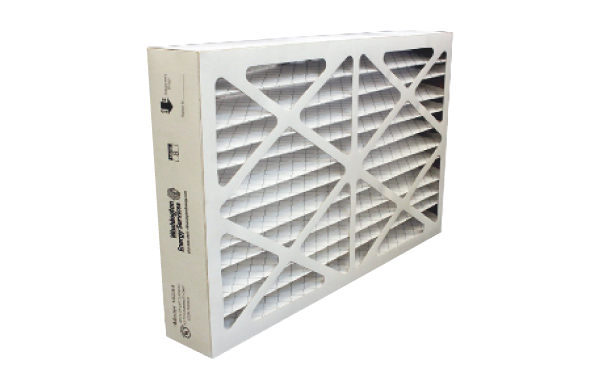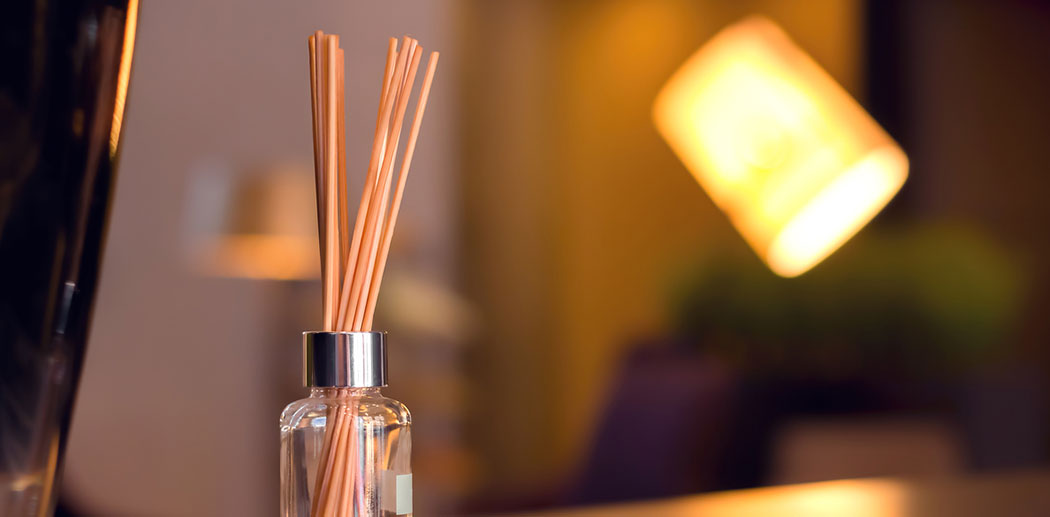
Hydro-Peroxide for Indoor Air Quality
If you’ve ever used hair dye, toothpaste, mouthwash, bleach, or first aid antiseptics, you’ve definitely been exposed to hydrogen peroxide.
Hydrogen peroxide is so effective at terminating germs, bacteria, viruses, and pollutants that it’s used in the many household products we use daily.
But, did you know hydrogen peroxide is also a safe and effective way to clean the air in your home?
The special cleaning properties of hydrogen peroxide
Controlled oxidation is an excellent way to destroy organics such as odors, viruses, bacteria, VOCs, and mold. Luckily, hydrogen peroxide is an oxidizer that does just that!
What is hydrogen peroxide?
Hydrogen peroxide (H2O2) is a compound of two-parts hydrogen and two-parts oxygen. It’s very close to water (H2O) with one extra atom of oxygen.
In fact, hydrogen peroxide has been used by the medical community for upwards of 170 years, mostly for disinfecting purposes.
What can you use hydrogen peroxide for?
Peroxide is considered to be the safest oxidizer available, after oxygen. This is why you may have seen it used in toothpaste, mouthwash and other household cleaners. Even the CDC gets behind using hydrogen peroxide for cleaning purposes!
Here are just a few more ways hydrogen peroxide can be used:
- Cleaning the dishwasher
- Scrubbing the sink
- Disinfecting counters and cutting boards
- Washing vegetables
- Cleaning garbage cans
- Shining mirrors and glass surfaces
- Improving your home’s airflow
- Removing mold and mildew
However, there are some limitations. Despite it being very safe, hydrogen peroxide is still a chemical and should not be used directly on skin, swallowed or eaten, or inhaled directly without filtration.
Why is an air purifier beneficial to your home?
Air purification systems are becoming more and more important nowadays. Not too long ago, you could only find these magical air cleaners in hospitals or commercial industries.
As air quality continues to worsen due to air pollution, people are feeling the effects of not having clean air. By having an air purifier in your home, it can have a great deal of benefits to your and your family’s overall health.
What is an air purifier?
Looming contaminants in the air work hard to keep our health on edge. Air purifiers are just as it sounds. They purify and clean the air from undesirable particles and volatile organic compounds that would otherwise cause issues for our bodies with everything from allergens to cancer.
They’re so effective at air cleaning, that during the pandemic air purifiers became widely used for their ability to decrease exposure to COVID-19 aerosols indoors.
How does it work?
Allergens like mold spores, smoke, pet dander, pollen, viruses, and many other pollutants can wreak havoc on your immune system. Air purifiers filter out these invisible home invaders, pulling them out of the air and trapping them inside a high efficiency particulate air filter, also known as an HEPA air filter.
Many air purification systems help reduce the growth of these microorganisms within your home and effectively destroy airborne pathogens and other contaminants including, VOC odors, CO, CO2, and dissolved gas.
Hydrogen peroxide meets your HVAC system
In the late 1990s, RGF Environmental patented an ionized hydro-peroxide technology called Photohydroionization (PHI) that creates hydro-peroxides from moisture in the air within an HVAC system.
Essentially, PHI simulates the natural hydro-peroxides in the outdoor air and releases this into your home. PHI kills microbes at the source, instead of trapping them within your filter system.
The air within your home will smell cleaner, as 55% to 98% of odors are reduced. This process is a well developed way to proactively sanitize the air within your home!
Up next: What Matters When Choosing Your New Air Purification System
Suggested Reading
- 2016
- AC
- AC Installation
- AC Units
- AFUE
- air conditioing
- air conditioner
- air conditioning
- air conditioning maintenance
- air conditioning service
- air conditioning tune-up
- air duct
- air duct cleaning
- air handlers
- air pollution
- Air Purification System
- air purifier
- Air Sealing
- angie's list
- award
- basement Finishing
- Bathroom remodel
- BBB
- BBB Accredited Business
- before and after
- Best air conditioner
- best filters
- best generator
- best locks
- best water heater
- best window install
- boilers
- bryant
- Bryant AC
- bryant furnace
- bryant heat pump
- christmas lights
- clean air
- clothes drive
- Clothes For Kids
- coat drive
- combi-boiler
- comfort
- community
- Construction
- contractor
- contractors
- Cooling
- Cooling equipment
- Coronavirus Protection
- custom
- daikin
- deals
- discounts
- DIY
- Donation
- Donations
- door hardware
- door installation
- door replacement
- Door Transformations
- doors
- drafty home
- drain cleaning
- Duct Cleaning
- Duct Cleaning Services
- ductless
- Ductless heat pump
- ductless heat pump. mini-split
- Ductless heat pumps
- ductless heating system
- ductless heating systems
- ductless installation
- Ducts
- earth day
- eco friendly
- EER
- election
- electrical inspection
- emergency
- energy
- energy conservation
- energy efficiency
- energy efficiency rebates
- energy efficient AC
- energy efficient air conditioner
- energy efficient home
- energy efficient hvac
- energy efficient HVAC Systems
- energy efficient windows
- energy myths
- energy saving
- energy saving home products
- energy star
- energy tax credit
- environmentally friendly
- exterior doors
- fall
- fall weather
- fiber cement
- fiberglass doors
- filter
- filter change
- financing options
- fireplace
- fireplace insert
- fireplace repair
- fireplace tune-up
- front door
- furnace
- furnace filters
- furnace install
- furnace maintenance
- furnace mileage
- furnace problems
- furnace replacement
- furnace service
- furnaces
- Garage door replacement
- gas fireplace
- gas fireplace inserts
- Gas Fireplace Makeover
- gas furnace
- generators
- going green
- good business practices
- green solutions
- Guardian Maintenance Club
- heat
- heat pump
- heat pump installation
- heat pump maintenance
- heat pump vs ac
- Heat Pumps
- heat pumps maintenance
- heat wave
- Heating
- Heating and Cooling equipment
- heating and cooling systems
- Heating Brands
- Heating Control
- Heating equipment
- Heating System Tuneup
- heatwave
- HEPA filter
- history
- holiday
- home
- home buyer
- home energy
- home energy efficiency
- Home energy efficiency solutions
- home exterior
- home heating
- home improvement
- Home Improvement Rebates
- home improvement repair
- home inspection
- home maintenance
- home maintenance checklist
- home maintence
- home performance
- home protection
- home repair
- home safety
- home upgrade trends
- home upgrades
- home value
- homeowners
- honeywell
- hot water
- hot water heater
- houzz
- how to
- HVAC
- HVAC Contractor
- HVAC Contractors
- hvac system
- IAQ
- indoor air quality
- infographic
- install
- install furnace
- insulation
- intellihot
- interior doors
- kids
- Kitchen face lift
- LED light
- LED lights
- light bulb
- light bulbs
- locks
- mailbag
- maintenance
- march
- membership
- mini-split
- modulating furnace
- money saving
- money savings
- navien
- new door installation
- new home
- New homeowner
- new windows
- news
- pacific northwest weather
- patio doors
- pets
- plumbing
- plumbing inspection
- power
- power outages
- precision tune up
- preventative
- Pro Tips
- Programmable Thermostat
- Programmable Thermostats
- propane
- PSE Award
- PSE Energy
- PUD
- Q & A
- Ratings
- rebates
- refund
- REME Halo
- Remodel
- remodeling hacks
- Replacing Heating System
- reputation
- Safe Home Insulation
- sale
- save energy
- Saving money
- scam
- scams
- seattle
- Seattle Weather
- SEER
- service
- services
- Siding
- Siding replacement
- sliding glass doors
- Smart Home
- Smart thermostat
- smoke
- Solar Attic Fan
- solar power
- Solar Powered Light Strand
- sound
- spring
- standby generators
- storm doors
- summer
- summer fires
- Summer heat
- Summer home
- super service 2016
- tank water heater
- Tank water heaters
- tankless tune ups
- tankless water heater
- tankless water heaters
- tax rebate
- thanksgiving
- Thermostat
- tips
- trends
- tune-up
- upgrade
- upgrade cooling
- upgrade heating
- utilities
- utility rebates
- veterans
- Washington Energy
- washington energy services
- water conservation
- Water Heater
- water heater installation
- water heater maintenance
- water heater repair
- water heaters
- water leak protection
- Wildfire Season
- wildfire smoke
- window
- window energy efficiency
- window install
- window maintence
- window remodel
- window repair
- window replacement
- windows
- winner
- winter
- zone heating
- Air Conditioning
- Air Purifiers
- Cooling
- Doors
- Ductless heat pump
- Environmental
- Fireplace
- Furnace
- Gas fireplace
- Generators
- Heat pump
- Heating
- Home improvement
- How to
- HVAC
- Indoor Air Quality
- Insulation
- News
- Plumbing
- Rebates
- Seattle
- Siding
- Smart Home
- Tank water heaters
- Tankless water heaters
- Tips to save money
- Uncategorized
- Wildfire Season
- Windows





